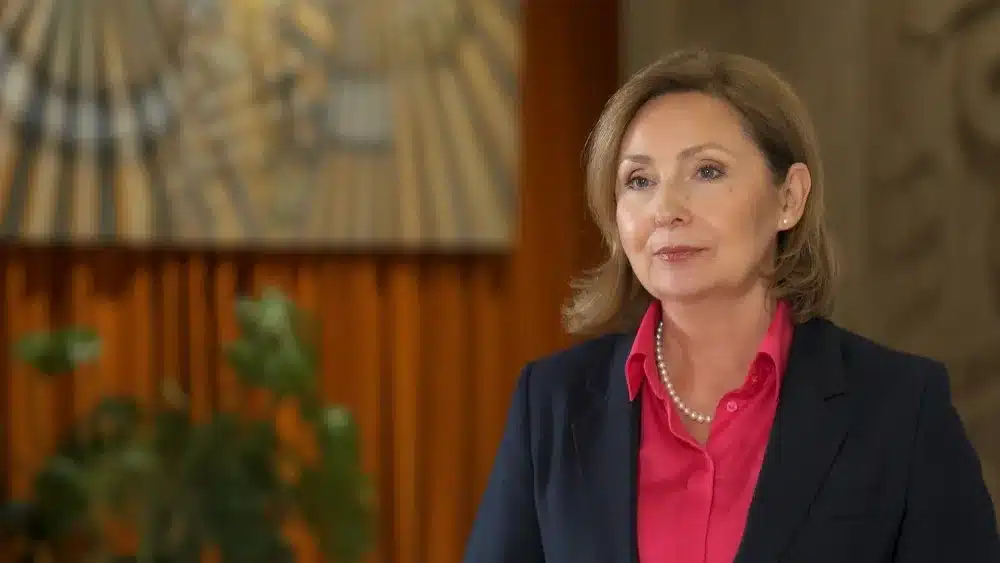The vast majority of Poles recognize the harmful effects of climate change, according to a study commissioned by ING Bank Śląski. They are prepared to change their habits to become more environmentally friendly but are often deterred by costs and lack of knowledge. At the same time, they expect more support and involvement from the government and businesses, with nearly 40% of Poles expecting start-ups to work on climate-friendly innovations. These entities are eager to get involved in this area, but they see many obstacles, including raising capital.
The IPSOS study, commissioned by ING, indicates that Poles believe in their ability to make a difference. Almost three-quarters of respondents believe that if everyone made small changes, it could help combat climate change.
Poles care for the environment by saving and not wasting, especially electricity and water. These are also things related to our daily habits, such as bringing reusable bags when going shopping, and we try to sort waste, with biowaste bins appearing in many households. Issues related to product recycling and conscious consumption are slowly being introduced into everyday practices– says Anna Stawiska, senior project manager at IPSOS.
The most common eco-friendly changes made by respondents include limiting unnecessary purchases (57%), repairing broken items and clothes so they last longer (53% and 46% respectively), and buying higher quality products that can last for years (41%).
Poles are also ready for larger investments, but they need to see the benefit of making them. There is room to convince Poles, for example, to change to energy-efficient windows, but we must explain why and what the benefits will be– explains the researcher. There is also a barrier associated with convenience. So, the message is important that using certain environmentally-friendly solutions will not make us lose convenience. Sometimes these are trivial barriers associated with people not knowing how to start changes.
The respondents admit that they lack money (53%), knowledge (46%) and will (44%) to live a more sustainable lifestyle. They need support in areas that require specialized knowledge or experience, such as alternative energy sources (31%), repairing broken items, and energy-efficient appliances (29%). Every fourth Polish person pointed to home energy audits, low-flow faucets and toilets, and energy-efficient windows.
More than half of the respondents believe that it should be state institutions that work on solutions for the environment, but only every third person would trust their solutions enough to at least familiarize themselves with them.
As many as 84% of Poles notice negative changes in the climate, which is why they expect concrete commitment to protecting the environment, mainly from state institutions. Expectations towards companies are slightly lower. Poles expect both Polish and global companies to commit to environmental solutions– says Małgorzata Jarczyk-Zuber, Chief ESG Innovation Officer at ING Bank Śląski. Importantly, there is great trust in business, especially well-known Polish brands. Surprisingly, Poles also expect start-ups to get involved – as many as one-third of Poles would like to use solutions provided by them.
More than half of the respondents (57%) see the strong points of start-ups as their innovation, unconventional thinking (53%) and motivation to succeed (51%).
Start-ups are very eager to engage in the area of sustainable development. They see changes in consumer trends, but above all changes in legislation, which drives the market. If we look at the whole European Union as a place that is becoming more and more ecological, more socially responsible, and more friendly to society, we will notice that start-ups see this as a great incentive to develop in this area– explains Michał Misztal, President of Startup Academy. The sustainable development market is very wide. These are not only projects that define our energy or renewable energy sources, but above all they change life for the better, such as modern education and social inclusiveness.
The study of 39 start-ups in the field of sustainable development conducted by Startup Academy on behalf of ING indicates that their main motivation for action is positive social or environmental change. However, they face many difficulties. Among the biggest barriers to business development, they point primarily to lack of access to funding, lack of networks and partnerships, support in sales and marketing, and legal advice. 58% of the surveyed start-ups claim that their activity supporting sustainable development has a neutral or even negative impact on capital acquisition.
Investors like specifics and hard numbers, not impact indicators. That’s why we believe that the market should be deeply educated, showing that not only money matters, but also the change that a start-up can bring to our society– is convinced Michał Misztal.
As he emphasizes, meeting the financial needs of sustainable development start-ups requires increasing the importance of impact indicators when allocating financial support, and simplifying grant procedures.
Cooperation of large corporations with start-ups is very important here, in order to create a joint business coalition that will support the environmental transformation– assesses Małgorzata Jarczyk-Zuber. Big business brings stability, including financial, strong brand position, recognition, whereas start-ups bring the innovation gene and a good fit of the product to market needs.
In order to support start-ups, in its 2021 Environmental Declaration, ING committed to setting up a grant fund for start-ups and young Polish scientists to implement projects in the field of sustainable development. This fund will receive 2 million PLN a year. There are two rounds of the grant program organized each year – in its sixth edition, the bank supports the 15th Sustainable Development Goal and seeks innovations associated with sustainable food production.
It’s not just financial support, but also a joint approach to scaling business, building business models, looking for contractors among our clients and start-ups. Climate challenges are urgent and so complex that cooperation of the entire ecosystem is important: the public sector, the private sector, that is small and large companies, start-ups, investors, finally NGOs and us, consumers– emphasizes the Chief ESG Innovation Officer at ING Bank Śląski.
